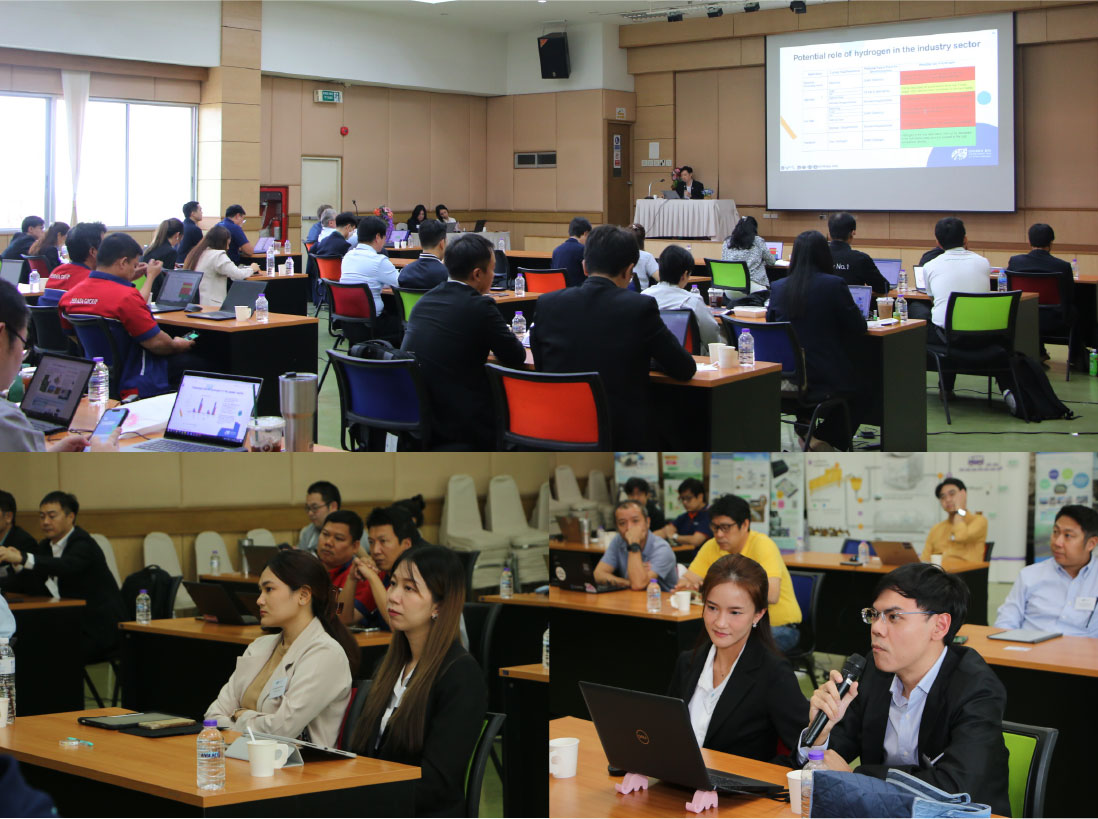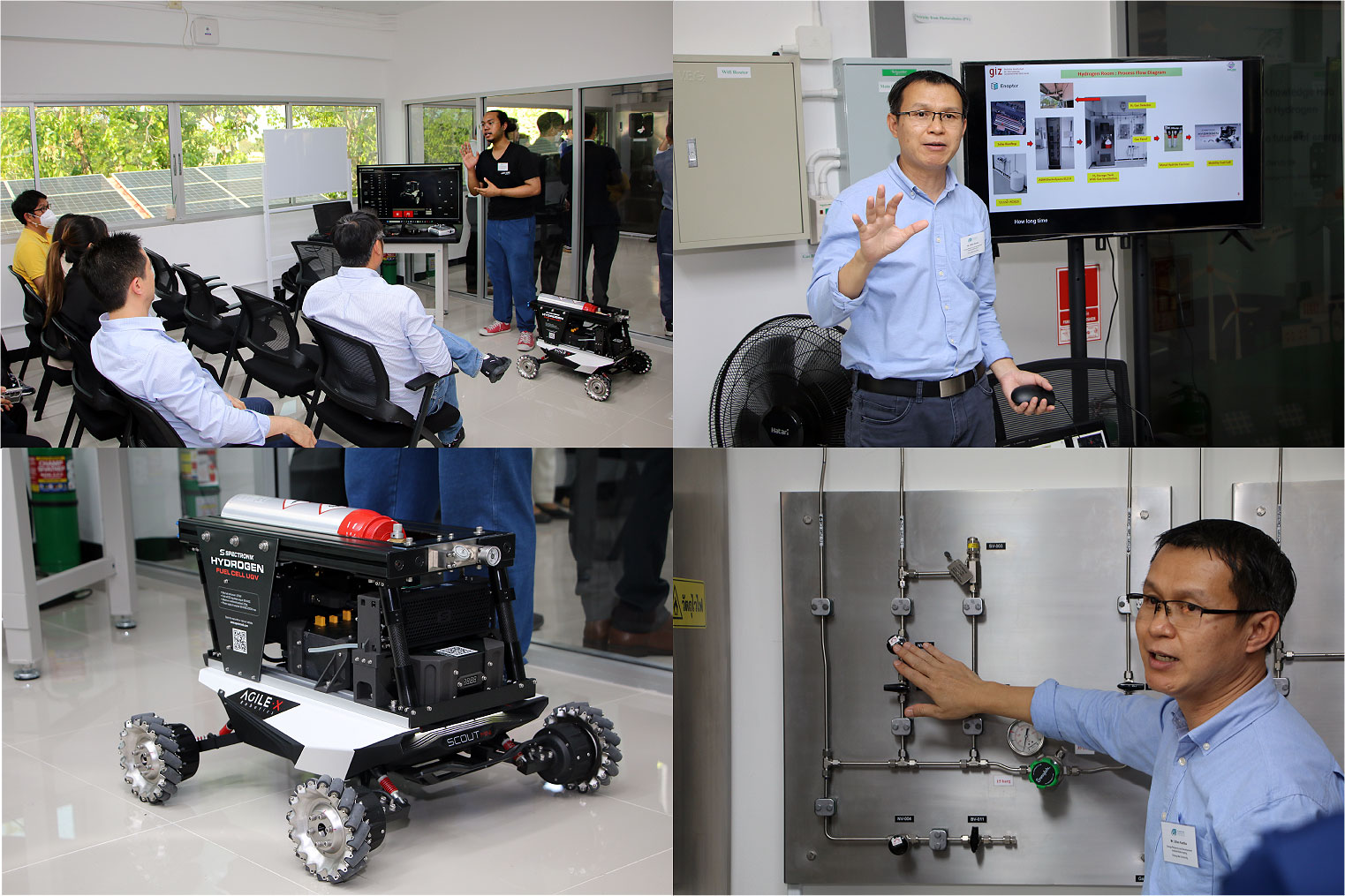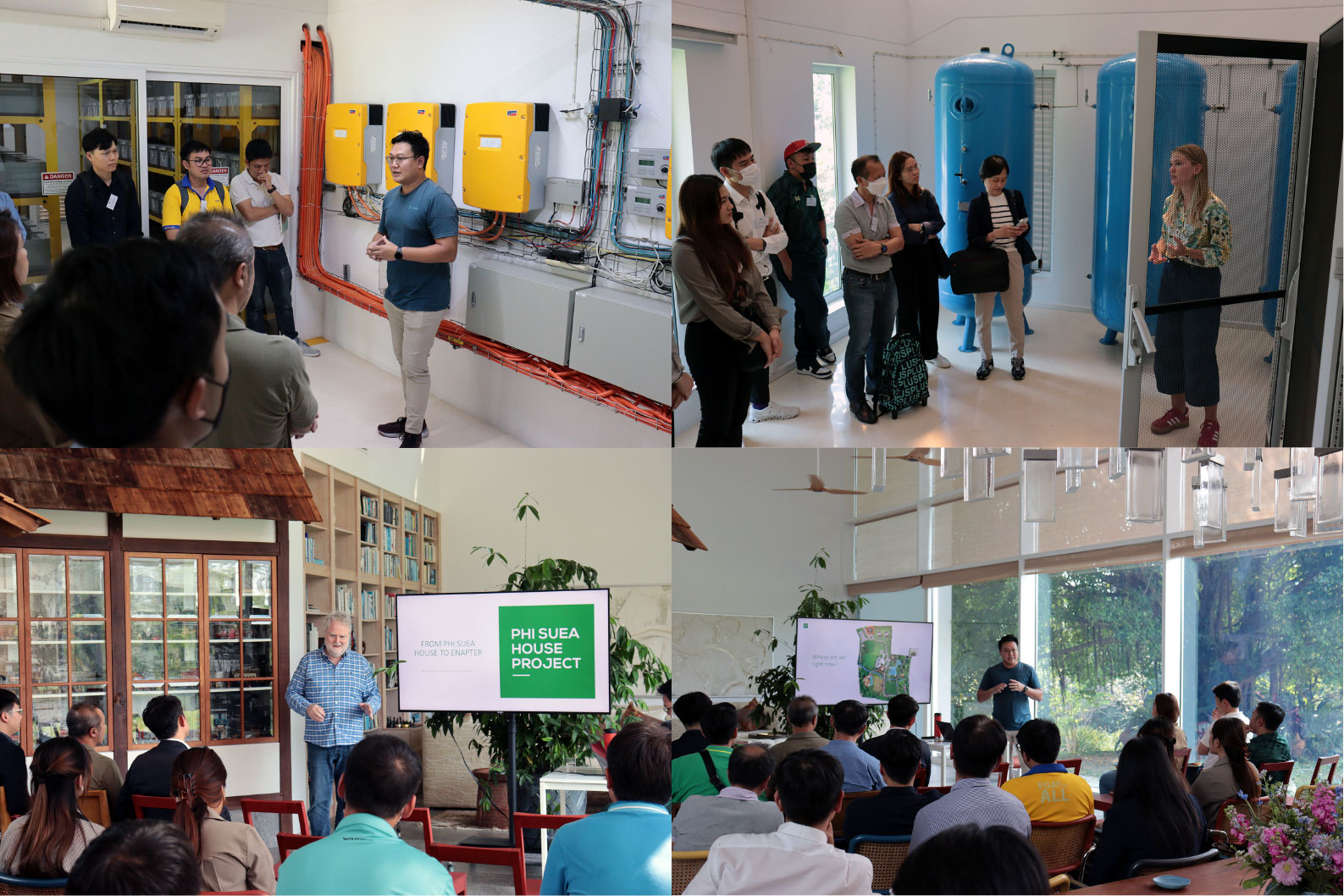Chiang Mai hosts Green Hydrogen public training to support sustainable H2 projects in SEA

- Two training sessions on Green Hydrogen project management and technology were conducted at the Chiang Mai Knowledge Hub for Green Hydrogen, aiming to equip Thai energy sector professionals with essential skills for embracing hydrogen as part of the energy transition.
- Participants also visited Phi Suea House, showcasing the practical application of Green Hydrogen technology, highlighting its potential to decarbonise hard-to-abate sectors, aligning with Thailand’s renewable energy goals and contributing to Southeast Asia’s transition towards a low-carbon future, supported by the H2Uppp programme.
In a significant step towards advancing Green Hydrogen project development in Thailand and Southeast Asia, two training sessions on Green Hydrogen project management and technology were conducted at the Chiang Mai Knowledge Hub for Green Hydrogen, a cooperative effort between the German green hydrogen technology company Enapter, the Energy Research and Development Institute-Nakornping, Chiang Mai University, and the International Hydrogen Ramp-Up Programme “H2Uppp”, implemented by GIZ.
The training took place from 25 to 28 March 2024 at the training facility of the Knowledge Hub located in Chiang Mai University. Project managers and technical staff from renowned Thai energy companies and the public sector received essential knowledge and skills around green hydrogen systems in two separate sessions, reflecting the widespread interest and commitment to embracing hydrogen as an integral part of energy transition.

The management-level training session delved into various aspects of Green Hydrogen project development. The attendees explored key concepts such as the economics of hydrogen technologies, market and commercialisation strategies, value chain analysis, and pertinent policy and regulations in Thailand.
Meanwhile, the technical-level training session offered hands-on experience and technical expertise essential for implementing Green Hydrogen projects. Participants gained insights into handling H2 systems, including electrolyser and fuel cell technology, and safety equipment.

A highlight of the training was the site visit to Phi Suea House, a pioneering example of a self-sustaining solar-hydrogen residence. This firsthand experience allowed participants to witness the practical application of Green Hydrogen technology, further solidifying their grasp of its potential and importance.

Green Hydrogen is a clean and sustainable energy carrier, offering a promising solution for decarbonising hard-to-abate sectors, such as the petrochemical, cement, and fertiliser industries. In Thailand, Green Hydrogen is seen as a key technology to help achieve the renewable energy targets set by the government. Training courses organised by the Chiang Mai Knowledge Hub for Green Hydrogen are expected to equip project developers and technology integrators in Thailand and Southeast Asia with necessary knowledge and skills to implement green hydrogen solutions effectively and sustainably across various sectors, fostering the region’s transition towards a low-carbon and resilient future.
Financed by the German Federal Ministry for Economic Affairs and Climate Action (BMWK), the H2Uppp programme is implemented in Thailand by GIZ in partnership with the German-Thai Chamber of Commerce (GTCC). H2Uppp aims to support the policy and market development for Green Hydrogen and Power-to-X through studies and training, the identification and initiation of public-private partnerships (PPP) and projects, and the promotion and dissemination of knowledge through local and international H2 expert networks, in particular, vis-à-vis the German private sector.
Tim Nees
H2Uppp Project Manager
Email:tim.nees(at)giz.de